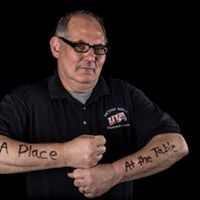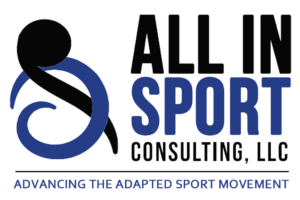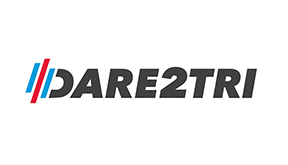By: Doug Garner, Assistant Director Campus Recreation – Adapted Sports/Recreation and Head Wheelchair Basketball Coach at the University of Texas at Arlington

As leaders in adapted sports, most of us live by the reminder from Mahatma Ghandi to, “Be the change you want to see in the world.” It is a mantra that we must use daily to advance the adapted sports movement and help others do the same. We use this message to sell the value and importance of our ideas and programs to supervisors and leadership in our organizations.
But, is it always that easy? Sometimes we see that our inspiration and desire just aren’t enough to sell the value of our programs to those making the all-important programming and budget decisions. That has been my experience in the world of higher education. Leadership may “see it,” but don’t really “get” that being the change in the adapted sports world often requires being bold and taking a stand to support change for athletes with disabilities, a population that is often not a priority.
Leadership outside the immediate adapted sport circle may throw our programs a bone here or there. A program may be developed at the request of a well-meaning staff member or student who acknowledges the importance of including disability in diversity, equity, and inclusion (DEI) efforts. Unfortunately, this program fizzles away once the champion staff person moves on. But for real, lasting change, we need strong, visionary leadership who gets the importance of including disability in diversity. For those of us in the adapted sport world, that means creating sustainable, quality sport programs for all students.
This is why it’s so important to make sure disability sport has a seat at the DEI table at your organization to build an inclusive and sustainable plan for athletes with disabilities. The lack of consistent leadership support only hurts athletes with disabilities who benefit from sport just as much as those without disabilities. Believe it or not, the entire organization benefits when every student – including those with disabilities – have an opportunity to move, play, and compete.
“There is nothing more difficult to take in hand, more perilous to conduct or more uncertain in its success than to take lead in the introduction of a new order of things.”
Niccoli Machiavelli, political philosopher and historian
I think the change Ghandi spoke of is harder than most people think. Innovation and change can be difficult because of the common mentality that “no one else is doing it, why should we?” Or, for a new employee or staff person, it can be seen as perilous because they may not have the confidence or organizational trust to “rock the boat” for fear of losing their position or being labeled a troublemaker.
Building a Pipeline of Bold Changemakers
An effective way to gain and keep a seat at the DEI table is to build an army of changemakers. Develop young people representative of the adapted sport population who:
- Have leadership qualities that can be cultivated even further by having a seat at the table.
- Are well-prepared, creative, innovative thinkers and not afraid to push current boundaries.
- Know how to build relationships with influencers, champions, and other changemakers.
- Respect the legacies of those who have built success and change – and have a vision for what the future of adapted sport looks like.
I get phone calls and messages every week from people who are working to “be the change” and help create and grow adapted sports programs. Every one of them top to bottom asks the same question – “Is it always this hard?” The answer is YES! But the hard work is so worth it. Creating change, being bold, being a risk-taker and leader is never easy. Continue to be a Bridge Builder (poem by Will Allen Dromgoole) and continue your path “to take the lead in the introduction of a new order of things.”


